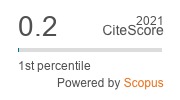Sugeno Fuzzy Logic-Based Data Agglomeration Model for Smart Aquaculture Development
Abstract
In this research, a data agglomeration model for smart aquaculture system has been developed andvalidated using asugeno fuzzy based machine learning approach. In order to increase production, machinelearning(ML)techniquesareemployedinfisheriesandaquaculturetodetectandmonitoravarietyofenvironmental parameters, including temperature, salinity, dissolved oxygen, and other factors. In the era ofdeveloping technology,these metrics are gatheredutilizingsensor-based networksystems.The input fromvarious sensors must thus be extracted and combined in the cluster head using sophisticated machine learningtechniques such as neural networks, mamdani fuzzy system, sugeno fuzzy system etc. to provide more accurateinformation. Trapezoidal membership functions are used for defining input variables, such as pollution, organiccarbon, salinity, dissolved oxygenand pH. In this, triangular membership function is used for defining the outputvariable (Aggregation). The input values are aggregated using the logical AND operator, truncation implication,weighted average defuzzification, and 1875 fuzzy rules. This model assigns a grade of poor, good, very good, orexcellent(onascaleof 1to 4),depending ontheaggregateareaof eachaquasite inthedatasets.Theperformance of the sugeno model is validated by aquaculture experts classifying the same datasets. Theresultshows that 96 % of the outputs of the created fuzzy model accord with the conclusions of the aquaculture expertand also it respond to complete aggregate value range, [1-4]. The results show that the sugeno fuzzy based dataaggregation model improves the accuracy and reliability of sensed data for the development of smart aquaculturebytheplannersanddecisionmakers




